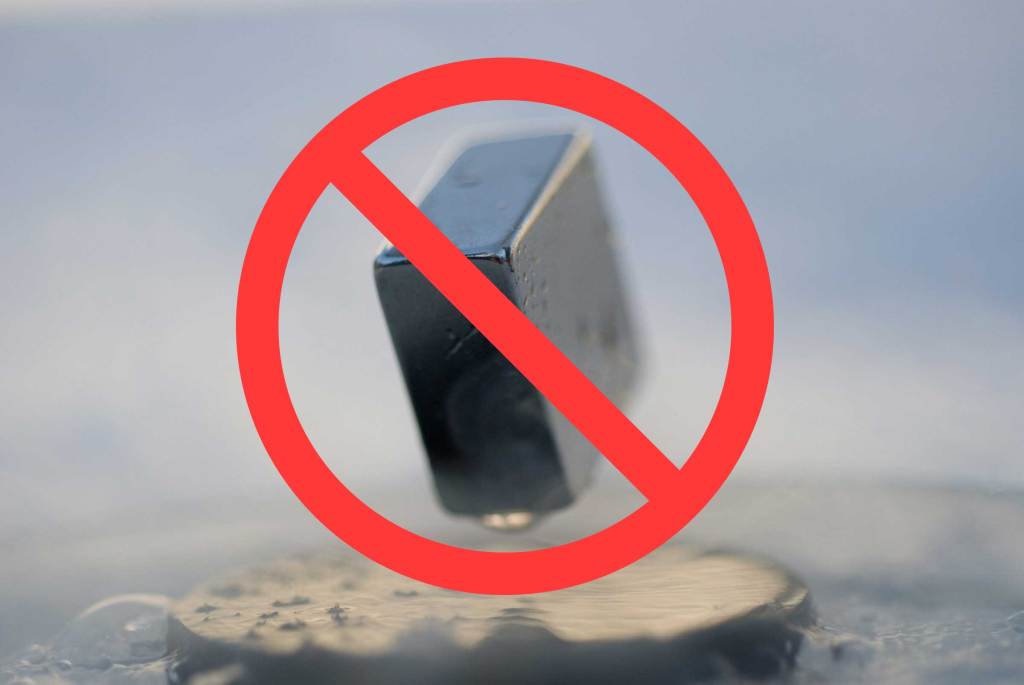If there was any hope remaining that LK-99 might be a room-temperature superconductor, it’s pretty much dead now.
In fact, it’s worse than that. Pure samples of the substance show that it is an insulator — the opposite of a superconductor. The glimmers of hope that kept the story in the news for weeks appear to be the result of impurities in the original samples.
Dozens of studies published in the last week or two have coalesced around the conclusion, less than a month after a sensational preprint paper was published by a team at the Quantum Energy Research Centre, a small company housed in the basement of a modest apartment building in Seoul, South Korea.
The Korean team made waves when it published preprints on July 22, claiming to have created a material that exhibited superconductor-like properties at ambient temperature and pressure. What’s more, the material was made of plebeian ingredients: lead, copper, phosphorus and oxygen. It flew in the face of decades of research into superconductors.
And yet it appeared to possess some of the same qualities that define superconductors. A video released by the team showed it partially levitating above a magnet, and when probing it for electrical resistance, they noticed a sharp drop around 104.8°C. Both the levitation and the resistance drop are hallmarks of superconductors.
Early warnings
There were warnings early on that the claims might be bunk. For one, the team published to a preprint server first. This isn’t necessarily a red flag, though preprints are far from the gold standard. There’s no peer review of preprints, and the bar for submission is pretty low. In most cases, that’s not a problem; preprints have allowed many fields to move more quickly than the traditional peer-review process allows, and most scientists aren’t making outlandish claims in their preprints. Still, the fact that LK-99 appeared first in a preprint wasn’t promising.
The Korean team was also hesitant to share samples. They claimed that was because they were going to submit it to a peer-reviewed journal and wanted to hold on to what LK-99 they had made until the peer-review process was finished. Which, fine. Sometimes reviewers want to see more data, and if the team didn’t have much sample on hand, they’d want to keep it to ensure they could address any concerns.
Still, compared with other superconductors, this one was relatively simple to make; producing additional samples shouldn’t have been that difficult. Plus, replication is a fundamental part of the scientific method. That the team didn’t want to share any samples for independent verification wasn’t a good sign, either.
Other labs dive in
From the start, there was some optimism surrounding LK-99 within the scientific community. Not because the material showed an innate amount of promise, but because to produce it, labs didn’t need access to crazy materials or expensive equipment (like a diamond anvil). If LK-99 was what the Korean team said it was, someone else should be able to see it, too.
Well, plenty of other labs made it, and no one was able to detect any qualities that would make it a superconductor.
A lab in China suggested that LK-99’s ability to partially levitate above a magnet was little more than basic ferromagnetism — something your refrigerator magnet could do. Another lab in Germany synthesized pure LK-99 crystals, which allowed the researchers to determine its structure. From that, they could test early theoretical predictions that suggested LK-99 might be able to superconduct. Spoiler: The theoretical predictions didn’t pan out.
One chemist, Prashant Jain at the University of Illinois Urbana-Champaign, didn’t even need to make a sample to spot a problem. He’s an expert in copper sulfides, and he noticed that LK-99’s drop in resistance happened at the exact same temperature that Cu2S undergoes a phase change. Cu2S is an impurity that can arise in the synthesis of LK-99, and below 104°C, its resistance drops. “I was almost in disbelief that they missed it,” Jain told Nature.
Spotting sketchy science
The fact that the scientific community spent less than a month vetting (and ultimately disproving) the Korean team’s claims is a testament to how quickly the scientific process can move these days. But the case of LK-99 also had a lot of qualities that raised scientists’ suspicions from the outset.
For one, the first anyone had heard of LK-99 was in a preprint paper. Again, lots of good science gets published first as a preprint. But if you have extraordinary claims and publish on a preprint server, you have to be able to back them up with extraordinary evidence. A video of partial levitation and some suspicious resistance data aren’t that.
To the Korean team’s credit, they did share some of their methods for how to make LK-99. However, they weren’t detailed enough for people to do so right away. It took some time and expertise to re-create a pure sample of LK-99’s chemical structure. But the fact that they were unwilling to share samples with independent labs should be a red flag to anyone investigating these claims.
Lastly, it wasn’t clear that the team had synthesized LK-99 in a particularly sophisticated lab. That meant the potential for contamination, which has a way of producing spurious results. In the end, that appears to be what happened.
No single thing tipped the fact that LK-99 wasn’t what it was claimed to be. Instead, it was the sum of several different things that made researchers suspicious and set them to the task of probing the Korean team’s findings. Ultimately, LK-99 is almost certainly not the wonder material lots of people were hoping for. But this whole saga should give us all some peace of mind: The scientific process still works.































Comment